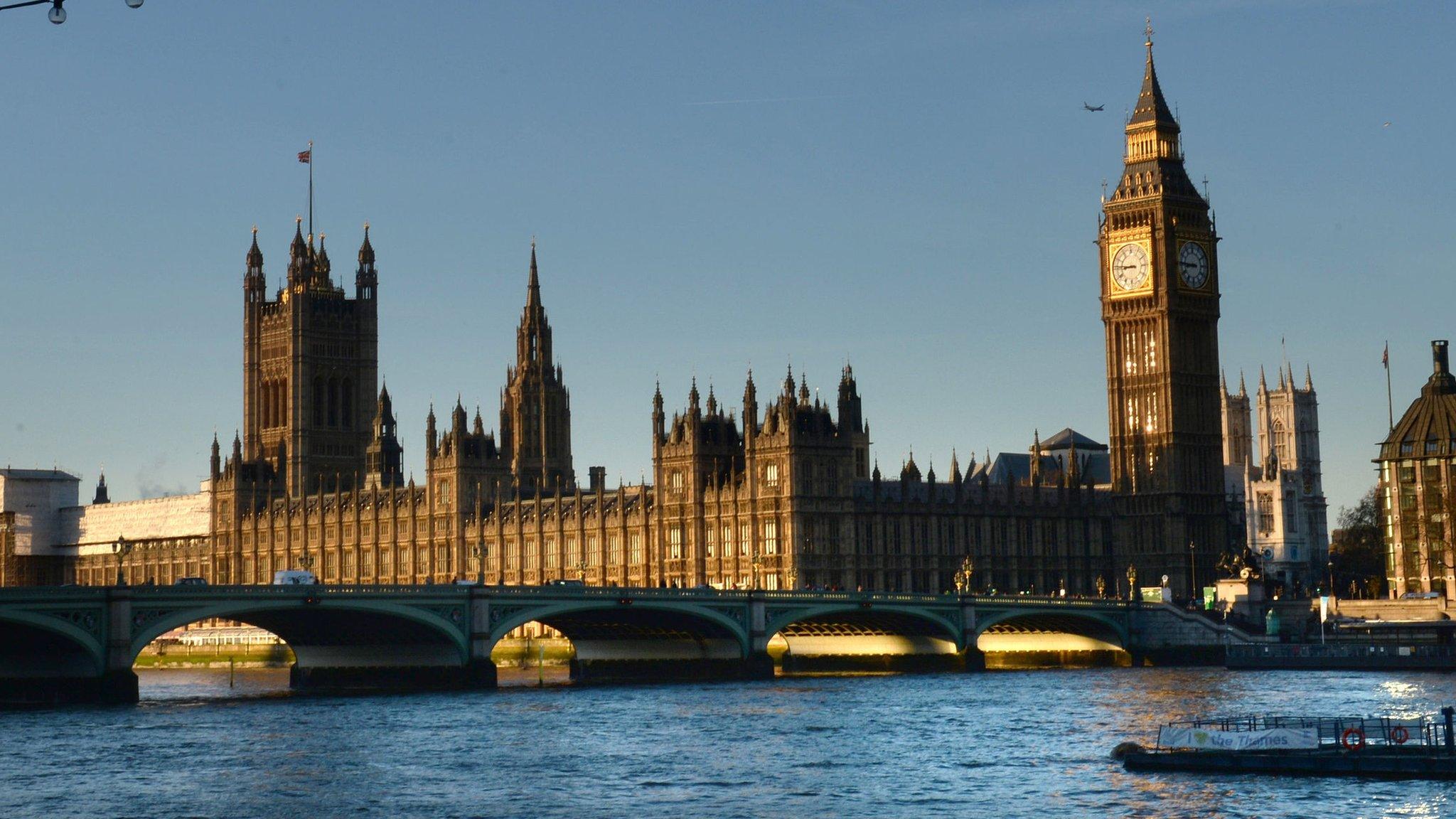David Cameron accepts EU treaty change delay
- Published
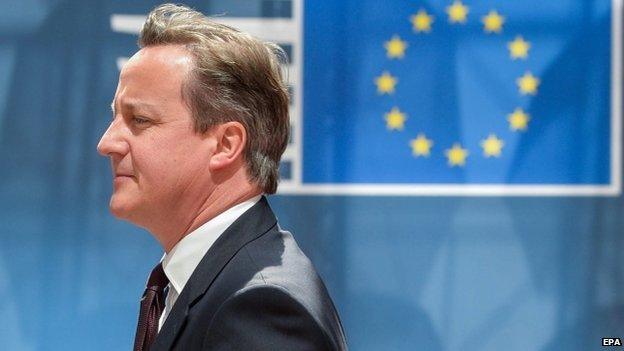
David Cameron has accepted there may be no change to the EU's treaties to accommodate Britain's demands ahead of a referendum, the BBC understands.
Mr Cameron has instead argued for "irreversible" and "legally binding" guarantees that EU law will be changed at some point in the future, says BBC political editor Nick Robinson.
No 10 said the PM remained committed to "proper, full-on treaty change".
Eurosceptic Tory MP John Redwood said the EU could not be trusted.
"We should never trust what the EU says. They change their mind more often than I change my shirts, which is very often," said Mr Redwood.
But he said he was "less exercised" about the legal structures used by the government to achieve reform.
Mr Cameron's commitment to hold an in/out referendum on Britain's membership of the EU by the end of 2017 meant it was always a possibility that any treaty changes would be enacted at a later date.
'Accepting the inevitable'
The PM attended a European Council summit in Brussels, where he formally set out his renegotiation aims to his EU counterparts.
BBC deputy political editor James Landale said an agreement had been reached that officials could begin looking at the "detail" of the UK's proposals.
Leaving the meeting in the early hours of Friday, Mr Cameron said: "I am delighted that the process of British reform and renegotiation and the referendum we are going to hold - that process is now properly under way.
"People always say to me these things aren't possible, we will never get them done. Once again, we have proved we will get them done."
In January, Mr Cameron said he would be demanding "full-on treaty change" in his negotiations.
Downing Street insisted the prime minister remained committed to that position and would not agree to any deal which was not clear about that.
A No 10 spokesman said the British people would be able to judge this for themselves when they voted in the referendum.

Analysis
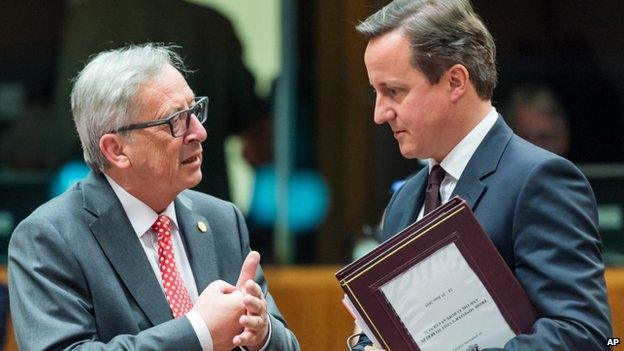
By Nick Robinson, BBC political editor
Eurosceptics and those who want to leave the EU altogether have always been suspicious that agreements between political leaders can be later undermined in the courts.
They believe that legal or treaty changes are necessary to deliver the prime minister's negotiating objectives - in particular to free Britain from the EU's commitment to build an "ever closer union" of nation states and to ensure that benefits such as tax credits be withheld from migrants who have been in the country for fewer than four years.
David Cameron's critics may fear that the formula he is now using is a watering down of that commitment and will demand to know who would interpret any legally binding agreement reached between the UK and the rest of the EU.
Downing Street insists, however, that it is simply a reflection of the fact that any treaty change will require a time-consuming ratification process in 28 different countries involving parliamentary votes as well as referendums in France, Ireland and Denmark.

However, UKIP leader Nigel Farage said the prime minister was "accepting the inevitable" that there would be no treaty change.
He told the BBC there "will be nothing really fundamental in Britain's renegotiation of its membership [of the European Union]".
"This doesn't look like a man on a mission who is determined to achieve something whoever he upsets," Mr Farage said of the PM. "This looks like somebody who is now setting his ambitions... incredibly low."
Former Conservative Home Office minister Damian Green, a pro-European MP, said it was "perfectly sensible for the prime minister to leave his options open" to get the results he wanted.
"It's obvious that a treaty change would require referendums in other countries so it would be a very long, drawn out process. You can see why other countries won't welcome that," he added.
'Non-negotiable'
For Labour, shadow foreign secretary Hilary Benn said Mr Cameron was "signalling retreat while pretending that all he ever wanted was a post-dated cheque".
"The prime minister has made a mess of this. He should have known what the position of other countries would be, but because he did not prepare the ground, for the second time in a few months he has been forced to admit that he can't get what he wants," he said.
Meanwhile, Tory MP Steve Baker, co-founder of Conservatives for Britain, said he and colleagues were "more concerned" about the "substance" of any new relationship between the UK and the EU "rather than the mechanism" which will deliver it.
The group, which includes former cabinet ministers, is calling for "fundamental" EU reform, including restricting freedom of movement and making Westminster sovereign over EU law.
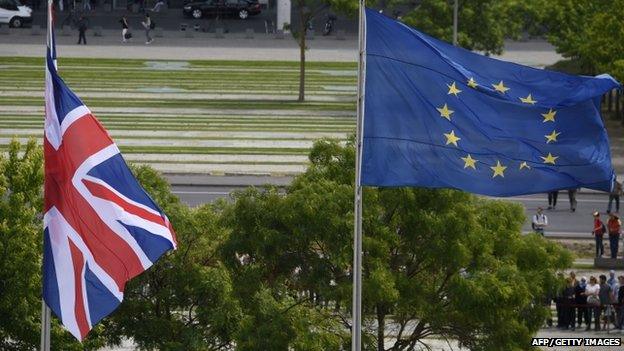
Mr Cameron has said he wants to reshape Britain's relationship with the EU
The gathering in Brussels is the first time the UK's objectives have been collectively discussed by EU leaders.
The PM said it was a "significant milestone" to have the renegotiation on the agenda, although due to the Greek debt and migrant crises, the discussions took place over dinner.
According to government officials, Mr Cameron was expected to warn his EU counterparts of the "widespread unease" in Britain over the terms of the UK's EU membership.
Ahead of the summit, the prime minister achieved his aim of speaking to all 27 EU leaders about his plans.
European Council President Donald Tusk - who will oversee the negotiations - said the substance of the UK's proposals will be considered "but only in a way which will be safe for all Europe".
Mr Tusk warned that the fundamental values of the 28-member bloc "are not for sale and so are non-negotiable".
'Compromises'
The PM's official spokeswoman said Mr Cameron had been clear he supported the fundamental values of the EU and the principle of free movement.
But she said "ever closer union" was not a principle Britain was attached to.
Germany's Europe minister, Michael Roth, said Britain must "put forward concrete proposals" for its renegotiation.
He said Germany was willing to discuss Britain's proposals "constructively" but "compromises" would be required.
Business for New Europe said Mr Cameron "does not need to change the EU treaties to get what he wants in Europe", saying "substance is more important than what piece of paper it's written on".
- Published25 June 2015
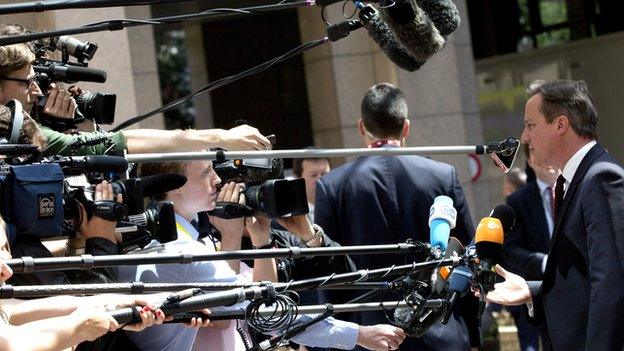
- Published25 June 2015
- Published24 June 2015
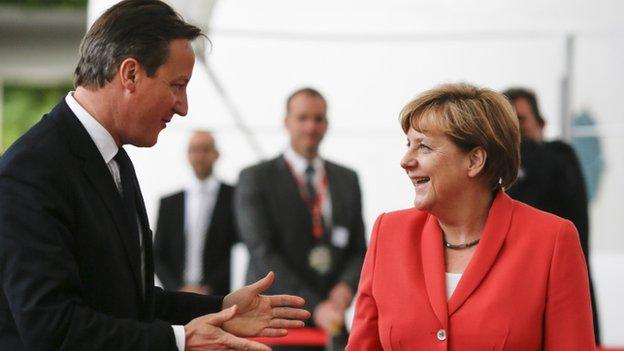
- Published19 June 2015
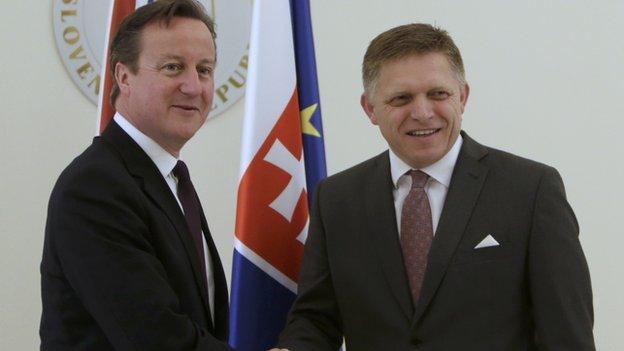
- Published25 June 2015
